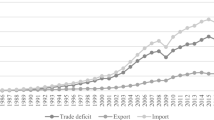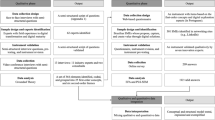Abstract
This paper presents research linking national culture and technology development. The research identifies how key features of Korean culture, collectivism and hierarchical authoritarianism, affect technological innovation. This perspective casts new light on cultural research that, while generally confirming national culture–technology development ties at the organisation level, has had less success accounting for culture barriers to innovation in collectivist nations, especially at the interorganisational level. According to the results of the study, closed collectivism and authoritarianism in Korea are responsible for the development of closed electronic data interchange (EDI) systems and the failure of an industry-wide EDI standard development. Hence, to develop open EDI systems which make communications between manufacturer and supplier free, Koreans need a new cultural standard.
Similar content being viewed by others

Author information
Authors and Affiliations
Additional information
Accepted: 19 August 2002
Rights and permissions
About this article
Cite this article
Manske, F., Moon, Y. Cultural signature of interorganisational information systems? The development of EDI systems in the korean automotive industry. AI & Soc 17, 45–61 (2003). https://doi.org/10.1007/s00146-002-0243-9
Issue Date:
DOI: https://doi.org/10.1007/s00146-002-0243-9



